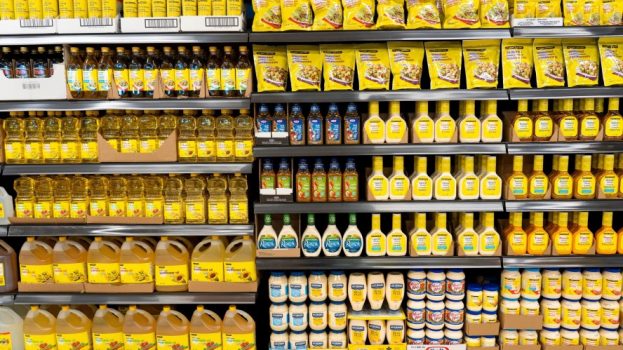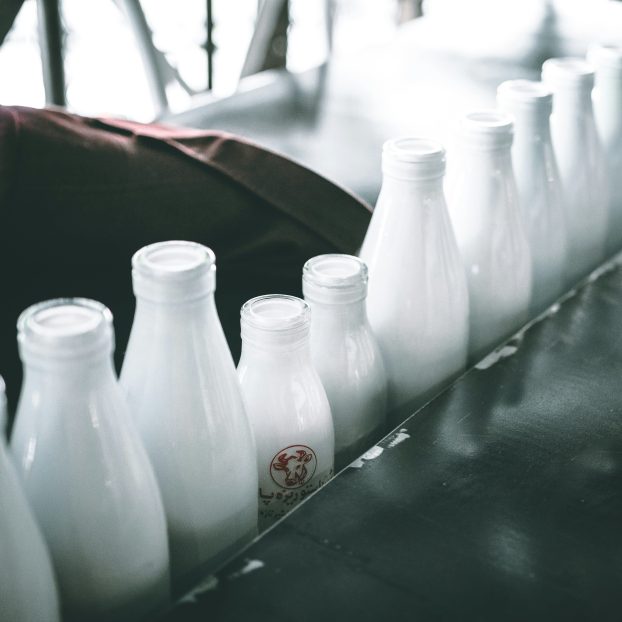The whole grocery landscape has changed thanks to COVID, and Toronto independent banner Fresh City is no exception.
The grocery brand has responded to an ever-shifting environment with a few different initiatives, recently announcing the opening of its Fresh City Bottle shop, curated by Canada’s first female master sommelier, Jennifer Huether (pictured, above). It has also launched a line of low-waste bulk pantry items, and expanded its product offerings to include different ethnic options to offer consumers a broad spectrum of foods and flavours that celebrate a wider set of cultures and their holidays.
Strategy spoke with Jenn Hay, chief customer experience officer at Fresh City Farms, to get a better handle on how it’s faring a year after the online grocery boom affected the whole sector.
What does the future grocery store look like, and what habits will be a holdover from the pandemic?
From my perspective, delivery is now table stakes. We now deliver seven days a week and offer time slot availability, so you’re not hanging around all day waiting and wondering, and now we deliver as far west as Hamilton to as far east as Oshawa. We are trying to make it easier for customers to shop with us, and to up the convenience factor. And we are also seeing way more customers interested in organic as it becomes more mainstream. People became a lot more aware of what they were consuming and where it came from.
With that said, consumer expectations are higher than ever. And big players have caught up with delivery and organic. So, I think from a customer perspective, having great segmentation is gonna be more important than ever and acknowledging that the cost of switching is low. I mean, we are competing with essentially the last, best experience a customer has had. I think a lot of people have experienced lots of different options during the pandemic, and realized that they had multiple options, whereas that was not as much as the case before. And we are seeing customers expecting you to always have what they want. Being aware of top selling products, and making sure they’re always in stock, is important.
How has your product assortment changed in the past year?
It has evolved quite a bit. We have added a lot more variety, from new non-alcoholic beverages, kombuchas, different types of sparkling waters to a lot more standard grocery items.
But the category that grew the most, far and away, was the prepared selection. Having to think about eating all three meals at home is a big shift for a lot of people, and they turned to options that were convenient. We are really proud of our prepared meal options, because no one can replicate those offerings, and we are bringing the best of our Fresh City, The Healthy Butcher and Mable’s Bakery brands together to creating dishes that are proprietary and really special, that customers cannot get elsewhere.
Another category that’s been interesting and hugely successful is our ready-to-bake line. You can get actual Mables croissants that are frozen, and you leave them out overnight, and they rise, and they’re baked fresh in the morning. We have a whole new line of bake-at-home items, and that’s a line that we are going to continue to foster.
Centre aisle and frozen food have experienced a thriving resurgence. How have things changed for you guys on that side?
That’s a great question. We have definitely seen a shift in our customer. We are seeing a lot more families, and so we have added a number of frozen options, whether it’s the prepared meals or frozen veg. Even with the bake at home offering, they’re all frozen as well, to quickly pull out heat and enjoy. We are kinda checking the boxes on the needs customers are looking to fill when they are asking for frozen, as well as high quality ingredients and providing a wealth of options in that space.
What informed opening the bottle shop?
The idea of the bottle shop goes back to the brand vision – bringing great food and drink offerings to Torontonians. You can think about growing wine, just like you do about growing food, and the way you treat crops is very similar in terms of chemicals, pesticides and what the wine goes through before you take your very first sip. We saw wine as a natural extension and the offerings we already had and a chance to focus on terroir and varying new elements that are coming out in the wine industry. More organic, natural and vegan ingredients, more women making the wine.
A lot of major grocers, like Walmart, have changed their layouts to be more spacious. How has in-store layout changed for Fresh City?
Our footprints will remain fairly small. Our Bay and Gerrard location is quite a bit bigger, but the same vibe holds true [regardless of location]. It’s not full of big flashy displays, but when and where we do leverage them, it has to makes sense, and probably will look to do more of that as we catch our breath coming out of this pandemic and reinvigorate our retail offering if people come back into the stores.
In terms of the Walmarts of the world, I come back to that sort of convenience play for Fresh City. We are in walkable neighbourhoods and we are part of your community and customer loyalty has held true because of that. It’s a different customer that interacts and is loyal to Fresh City for the most part.

























